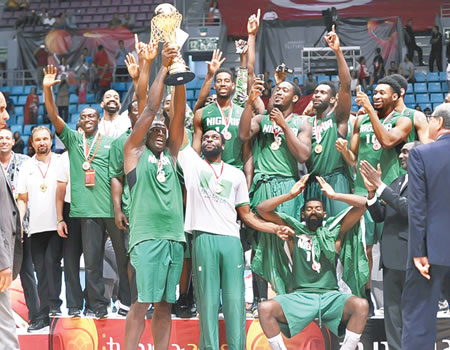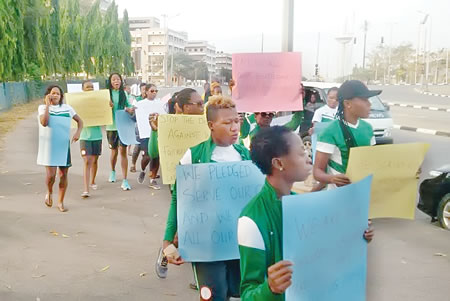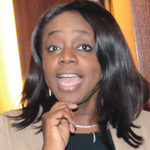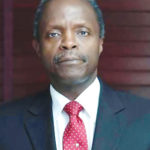Tribunesport’s GANIYU SALMAN, in this piece examines the sports sector in Nigeria in the last two years under President Muhammadu Buhari which reveals a number of achievements as well as shortcomings which would not be forgotten in a long time to come. His report:
The Muhammadu Buhari administration took the first step by returning the portfolio of the sports ministry to the north central zone with the coming on board of Barrister Solomon Dalung, from Plateau state on November 11, 2015. He became Nigeria’s 15th sports minister since 1999.
Perhaps, history repeated itself in 2015 after Buhari assumed office as the Golden Eaglets, in November of the year, lifted the FIFA U-17 World Cup for a record fifth time. It will be recalled that Buhari was also at the helm in 1985 when Nigeria won the inaugural FIFA cadet World Cup in China.
In August 2015, Nigeria, through D’Tigers, for the first time won the African Basketball Nations Cup “2015 AfroBasket’ held in Tunisia. Nigeria defeated old nemesis Angola 74-65 in the final.
On January 21, 2016, the Buhari administration scored a point when it hosted and rewarded the Golden Eaglets squad which won the maiden FIFA U-16 World Cup in China in 1985 at Aso Rock Villa. He gave the 1985 Eaglets N2million each and their coaches N1.5million each.
The same day, it also showered naira rain on the 2015 FIFA U-17 winning squad, coached by Emmanuel Amuneke as well as the 2015 world wrestling championship medallists; members of D’Tigers which won the 2015 AfroBasket; IPC Asian Powerlifting medallists, world scrabble champion, Wellington Jighere; WBC cruiserweight silver medallist, Olanrewaju Durodola with N1.5millon, among others who won laurels for the country.
President Buhari had emphasised that the reward system was “in line with our belief that the labour of our heroes past shall never be in vain”.
Team Nigeria to the 2015 All Africa Games in Congo Brazzaville surprisingly finished second behind Egypt with 47 gold, 55 silver and 42 bronze medals.
Nigeria’s Dream Team coached by Samson Siasia in December 2015 also won the U-23 CAF Nations Cup in Senegal to qualify for the 2016 Olympics as African champions.
At the 2016 Rio Olympics, Team Nigeria unlike London 2012, this time came back with a bronze medal through the Mikel Obi-led Dream Team. Another achievement recorded at Rio 2016 was the exploits of table tennis star, Aruna Quadri, who became the first African to play in the quarter-finals of the men’s singles at the Olympics. Nigeria later finished as Africa’s best at the 2016 Rio Paralympics. Team Nigeria recorded the best record ever since their debut at Barcelona 1992, with eight gold, two silver and two bronze medals to finish 17th in the world among the over 120 countries which attended the Games.
The eight Nigerian gold medallists at Rio 2016 Paralympics also set world records — Ezuruike Roland, men’s powerlifting -54kg; Kehinde Paul, men’s powerlifting -65kg; Ejike Lucy, women’s powerlifting-61kg; – Onye Lauritta, women’s shot put F40; Nwosu Ndidi, women’s powerlifting -73kg; Omolayo Bose, women’s powerlifting -79kg and Orji Josephine, women’s powerlifting +86 kg.
In November 2016, Odunayo Adekuoroye became world champion at the 2016 United World Wrestling (UWW) Golden Grand Prix. The 55kg freestyle wrestler, now with Punjab Royals of India, in January this year, also retained the Indian Pro Wrestling League Season Two after winning the maiden edition in 2015 with Mumbai Garuda.
Also to cap 2016, in December, the Super Falcons lifted the African Women’s Cup of Nations (AWCON) after beating the hosts, Lionesses of Cameroon 1-0 in the final for the record eighth time.
The Nigerian wrestling team in April this year also won the 2017 Senior African Wrestling Championships in Morocco with six gold through Adekuoroye, Mercy Genesis, Aminat Adeniyi, Blessing Oborududu, Kemeasuodei Dressman and Gofit Winnie and two silver medals won by Bose Samuel and Bisola Makanjuola.
Only penultimate Sunday, Adekuoroye and Oborududu wrote Nigeria’s name in gold again following their victories at the just-ended fourth Islamic Solidarity Games in Azerbaijan.
However, there are a number of shortcomings too in Nigerian sports in the last two years which cannot be swept under the carpet.
The sports minister, Dalung, has always created drama in the sporting world with his remarks retracting some of his controversial remarks after protest by stakeholders.
He was quoted on Voice of America as saying that Nigeria did not need to attend the World Cup since the Super Eagles cannot win it.
“The Cup that we can win is the African Cup of Nations. There is nothing again that will take us to another man’s balcony in the name of the World Cup. We already have the Commonwealth Games and the Olympics. For these, we can attend such meets. But I am opposed to the World Cup,” Dalung, who later retracted the controversial statement, was quoted as saying on VOA.
It is also on record that the ugly drama staged on the streets of Abuja by the victorious Super Falcons on December 14, 2016 after winning the Women’s Nations Cup will not be forgotten in a hurry.
The embittered players, after waiting since December 6 to be paid their entitlements totalling N238.05 million, carried placards to the National Assembly on the day President Buhari was to present the 2017 budget to lawmakers. The players refused to leave their hotel lodge and held onto the trophy until December 19 when they started getting bank payment alerts following the intervention of the presidency too.
Dalung set up a sports reform committee headed by Godwin Kienka, to chart a way forward for sports development in Nigeria, as Nigerians await the gains of the efforts in the nearest future.
The ministry of sports introduced two provisions in the guidelines for the sports federations elections that caused ripples — “Any person occupying the post of president of an international sports body shall not contest for the post of president and vice- president of a national sports federation. Those who have served two consecutive terms as president of their national sports federation shall not contest for the post of president of the federation.”
These obnoxious provisions have since been discarded by the sports ministry in a statement on April 23.
The inability of the sports ministry to conduct elections into the boards of the sports federations since August last year is also one of the woes recorded in Nigerian sports in recent times.
Renowned sports administrator, Elias Gora had said that going by the IOC charter, elections must be conducted within three months after the last Olympics.
Also, it is the first time in a long time Nigeria would fail to qualify for the Africa Cup of Nations (AFCON 2017), AFCON U-20 and AFCON U-17 at the same time.
Sadly, Nigeria could not also take part in a number of international tournaments as a result of paucity of funds.
The Nigeria team due to attend the ITTF African Junior Championships in Tunisia in March this year failed to honour the meet owing to unavailablity of funds. Only the intervention of the Nigeria Table Tennis Federation (NTTF) president, Wahid Oshodi eventually made Tosin Oribamise and Azeez Solanke to feature in the Youth Commonwealth Games (YOG) qualifiers, also held in Tunisia, where Oribamise eventually qualified. She will now hoist Africa’s flag at 2018 YOG scheduled for Argentina.
In October 2016, the Nigeria’s senior team almost missed the African championships held in Morocco, but for Funke Oshonaike who sponsored herself from her base in Germany. The six-time Olympian reclaimed the women’s singles title she first won 16 years ago, after defeating Egyptian Dina Meshref in the final. She was, however, unable to take part in the women’s doubles as neither Edem Offiong nor Cecilia Akpan could make the trip due to unavailability of funds. Oshonaike was also lucky enough to leave Morocco with a silver medal in the mixed doubles having paired with Segun Toriola, who equally made the trip among the lots. The absence of the other female players in Morocco ruled out the Nigerian women’s team from taking part in the 2017 and 2018 World Championships.
Earlier in 2016, it was only the male team which made it to the World Team Championships in Malaysia, following the inability of NTTF to secure funds for the trip, before the athletes were later refunded by the sports ministry.
However, the fate of the seven-man team to this year’s ITTF World Championships scheduled to start on May 29 (today) in Germany, hangs in the balance given the prevailing circumstances.
The NTTF, according to findings has since made a formal request for funds for the trip from the ministry of sports that would enable Africa’s highest ranked player, Aruna Quadri; seven-time Olympian, Segun Toriola; African women’s champion, Olufunke Oshonaike; Italy-based Olajide Omotayo; Ojo Onaolapo, Edem Offiong and Cecilia Akpan to be on parade for Nigeria at the global tourney.
What could be described as another national embarrassment was the Dream Team episode in US prior to the 2016 Olympics. The team got stranded during their training tour of the United States en route to Brazil. In fact, they got to the venue of their opening game against Japan, two hours before kick off and braced the odds to win 5-4.
The Rio 2016 drama started when Dalung even declared that he was not aware of the team’s tour of Atlanta in response to the lamentation by coach Samson Siasia that the team had been abandoned by the authorities.
“The issue of our U-23 national team suffering in the United States of America is news to me. In fact I am hearing it from you [the media] for the first time”.
On another occasion, Dalung was quoted as saying that they did not expect the Super Falcons to win AWCON following the embarrassment caused by the protest by the players’ protest on the streets of Abuja.
“Don’t forget that nobody even knew the team will emerge victorious. If we were confident they will emerge victorious, all the federation [NFF] would have done is to plan for process of participation and entitlements [of the players],” Dalung had told reporters in Abuja.
The Nigeria Handball Federation was banned by the Confederation of African Handball (CAHB) in June 2016 for failure to pay affiliation and participation fees in the Africa men’s Championship held in Egypt, in January, a development which also ruled out Nigeria from participating in this year’s world championship. The ban was lifted in January this year after the HFN was able to pay the outstanding debt of €9,800 owed the continental body upon the release of money by the sports ministry.
However, despite the lifting of the ban, the Nigerian women’s team will miss the 2017 Women’s World Championship as country was serving ban last year when the draw for the African Women’s World Cup qualifiers in Angola in 2016 was conducted.
Some of the stakeholders who spoke with Tribunesport said the role of government in sports development should go beyond creating the enabling environment for sports to thrive as there are lots to be done, for the nation’s athletes to maximise their potentialities and realise their dreams through adequate funding.
However, some stakeholders give kudos to the current administration on sports development in the country, saying there is room for improvement.
“It is a common adage that he who lives in a glass house does not throw stones. But at the same time, if the stone will bring forth positive changes. I want to therefore submit that sports has not fared well in the past two years. Look round, how many developmental programmes did we have at the grassroots? Federations and zones were rendered non-functional. I can say authoritatively that no kobo was given to the federations and the zones as allocation within this period. Take a look at our participation at the continental and international competitions. Misplaced priority is the order of the day. May God help Nigeria my brother,” a renowned sports administrator who pleaded anonymity remarked.
Also, a sports analyst submitted that: “It is obvious that successive governments since 1999 have never understood the place of sports in community development, youth mobilisation, employment generation, etc they have always seen sports as an adjunct. For this administration, I think he gave us the kind of sports minister we deserve. They have no focus. Atop of it all, they scrapped the National Sports Commission (NSC). I can only score them just 18 per cent.”







